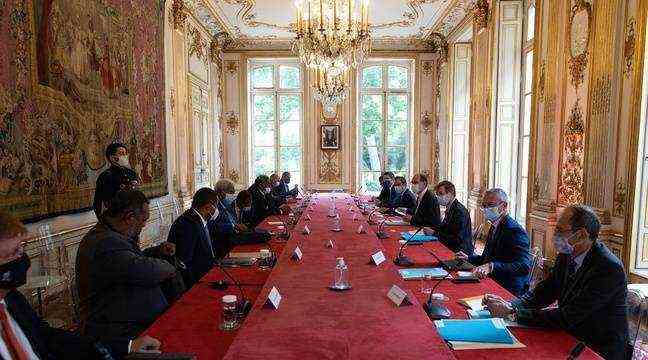Discussions between the elected representatives of New Caledonia and the government, in Matignon on May 26, 2021. – Raphael Lafargue-pool / SIPA
The question was extremely sensitive, but the Caledonian elected officials still managed to come to an agreement. Under discussion in Paris for a week, they resulted Tuesday, according to several sources, in an agreement on the date of the third and last referendum on self-determination. Delegates also agreed on the post-referendum schedule, whether won by separatists or loyalists.
The final consultation on independence in New Caledonia must be held before October 2022, putting an end to the Nouméa agreement (1998) which organized the progressive emancipation of this territory of 270,000 inhabitants. According to The world, this consultation could take place on December 12, 2021.
Official announcement this Wednesday
Whatever the outcome, it will be followed by a two-year transition. In case of victory of the yes, this will make it possible to prepare for the exercise of full sovereignty. In case of victory of the no, it will be necessary to develop a new statute for New Caledonia, which will have to be approved by a referendum of Caledonian voters, according to the daily. Overseas Minister Sébastien Lecornu is due to officially inform the government of the result of these negotiations on Wednesday at the Council of Ministers.
The delegations negotiated late Monday evening in Matignon, to reach these compromises, and then met President Macron on Tuesday afternoon. A meeting remained uncertain until the last moment, because it remained suspended from the smooth running of discussions between separatists and loyalists. The two parties spent a week in Paris at the invitation of Prime Minister Jean Castex to work on a document provided by the State on what had to be concretely considered for the post-referendum.
The gap between supporters and opponents of independence narrowed markedly in the second referendum of 2020, compared to the first in 2018. Loyalists fell from 56.7% to 53.3%, while that the separatists rose from 43.3% to 46.7%.

